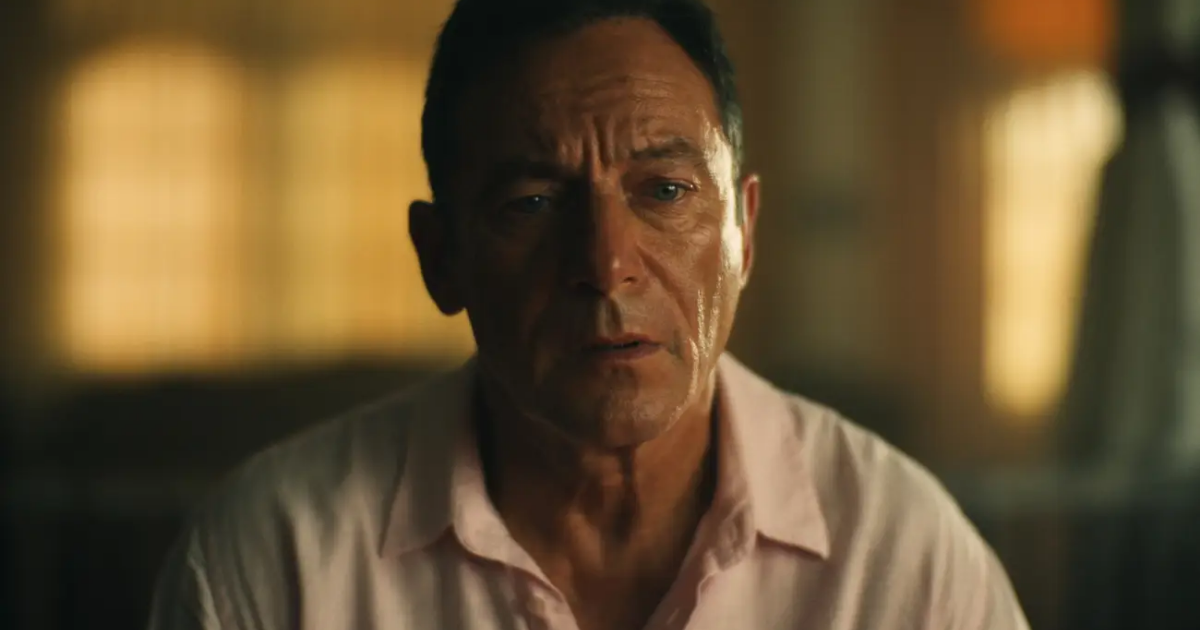For those who haven’t seen The White Lotus, it’s a sharp and unsettling look beneath the surface of luxury travel. Across its three seasons, the show follows wealthy vacationers (and the people who serve them) as they escape to exotic resorts, only to discover that their problems have followed them there. The characters are especially compelling thanks to the eclectic, often surprising casting choices, bringing real depth and complexity to their roles. Beneath the glamour, The White Lotus explores the weight of privilege through philosophical and spiritual themes. It wrestles with regret, power, longing, and fate—asking what happens when people are forced to confront the lives they’ve built, and the lives they fear are slipping away. A word of caution: the show contains mature themes and strong content that some may find challenging.
In the third and most recent season, one character deeply resonated with me. Timothy Ratliff (played by Jason Isaacs) arrives at the luxury resort already carrying a heavy burden. He receives several calls from a journalist working on a story about illegal activity by his former business partner, the IRS is closing in, and he knows the consequences of his mistakes are catching up to him. Desperate to reach his lawyer but forced to surrender his cell phone at check-in, he finds himself trapped in an unbearable silence. His mind races while his body plays along with the facade of vacation. He tries to mask his growing panic beneath forced smiles, small talk, Lorazepam, and alcohol, all the while sensing the storm gathering beyond his reach. And yet his deeper longing is to reconnect with his family. He lingers at breakfast tables, tries to insert himself into casual conversations by the pool, quietly reaching for a sliver of connection. But every conversation just reinforces his feeling of letting his family down. Beneath it all, you sense his fear—not only of exposure but of being truly, irreversibly alone.
And then, in the final scene on the boat as his family travels back home, he stands alone, staring out into the vastness of an indifferent sea. You feel his fear in that moment—the fear of losing one’s identity, of losing the ones you love, of not being able to make things right. But slowly, you also sense something else emerging: an unexpected quietness. A fragile peace.
This is what the Stoics called amor fati—and also the title of the season finale. Amor fati (the love of fate) is not merely accepting what life brings but embracing it—even the pain and loss—as necessary, meaningful, and perhaps the only way forward once illusion falls away. The father doesn’t arrive here all at once. He drifts there, almost accidentally, as if life has pushed him to the edge and all that’s left is to stop resisting. His face in that moment tells a story that words can’t capture. He is not a man who has found all the answers, but a man who has stopped running from the questions.
I have learned to be content whatever the circumstances. I know what it is to be in need, and I know what it is to have plenty. I have learned the secret of being content in any and every situation, whether well fed or hungry, whether living in plenty or in want. I can do all this through him who gives me strength. – Philippians 4:11b-13 (NIV)
As I watched, I couldn’t help but hear an echo of Paul’s words to the Philippians from within a prison cell: “I have learned to be content whatever the circumstances.” But where the father rests in fate, Paul rests in faith. Paul’s contentment, though expressed from the confines of prison, isn’t passive resignation but an active, hopeful trust in Christ’s presence and promise. It’s a contentment that says: I am held, even here. Even in prison, even in hunger, and even in longing for a resolution that may never come in this life.
The father’s story shows us the limits of human striving, and in that way, it brings us to the edge of something sacred. Because before faith becomes trust, it begins in honest surrender—in admitting our brokenness and acknowledging the sin we cannot repair on our own.
Whether we start from philosophy or from Scripture, both paths invite us to loosen our grip on control. But only one promises that, in letting go, we fall not into the void, but into the hands of a loving God.
Most of us will find ourselves where the father does at some point—alone with our regrets, staring out at life’s vastness, terrified of what’s next. In those times, we can learn to relinquish control and accept our circumstances. But as people of faith, we don’t have to stop there. We can lift our eyes beyond mere acceptance of fate, toward trust in a loving God, who meets us precisely where our own strength ends.














